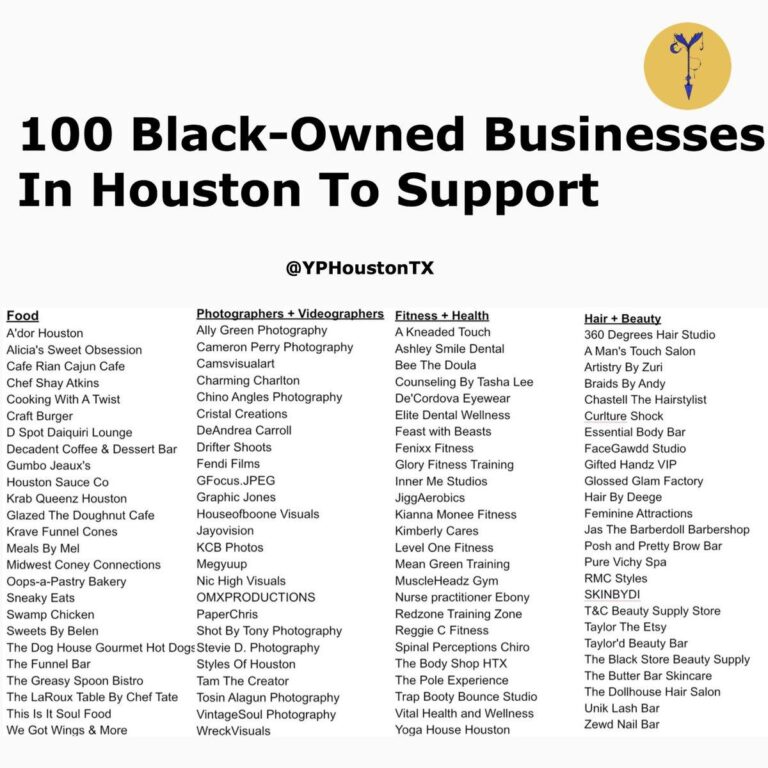Overcoming Financial and Support Barriers for Minority and Women Entrepreneurs in Houston
Challenges Confronting Minority and Women Business Owners in HoustonŌĆÖs Economic Sphere
Despite HoustonŌĆÖs dynamic and expanding economy, entrepreneurs from minority backgrounds and women-owned enterprises frequently encounter formidable obstacles that hinder their business development and sustainability. A primary impediment is the restricted availability of capital, often a result of entrenched biases within conventional financing systems. These business owners typically face more stringent lending requirements and lack access to influential investor networks, which are vital for securing early-stage funding. This financial shortfall limits their ability to hire additional staff, implement effective marketing campaigns, and modernize operational systems.
In addition to monetary challenges, these entrepreneurs often experience a scarcity of essential support mechanisms, such as:
- Limited access to mentorship: Few programs are specifically designed to support minority and women entrepreneurs.
- Networking difficulties: Restricted entry into established business circles reduces opportunities for partnerships and client acquisition.
- Unequal contract distribution: Government and corporate contracts tend to favor larger, more established companies.
| Barrier | Consequence | Percentage Affected |
|---|---|---|
| Capital Accessibility | Hindered business expansion | 72% |
| Mentorship Availability | Insufficient strategic guidance | 65% |
| Networking Opportunities | Reduced collaboration potential | 58% |
| Contract Access | Decreased revenue streams | 50% |
How Capital Shortages Affect Business Longevity and Expansion
Securing adequate funding remains a significant hurdle for many minority- and women-led businesses in Houston, directly impacting their ability to grow and maintain operations over time. Insufficient capital restricts inventory procurement, workforce growth, and marketing initiatives, which are essential for competitiveness and innovation in todayŌĆÖs market.
Consequences of limited financial resources include:
- Inability to invest in advanced technology and infrastructure upgrades
- Increased susceptibility to economic fluctuations
- Challenges in attracting and retaining skilled employees
- Difficulty fulfilling rising customer expectations
| Financial Challenge | Effect | Illustrative Example |
|---|---|---|
| Insufficient Operating Capital | Disrupts daily business functions | Delayed payments to vendors |
| Elevated Loan Interest Rates | Reduces profitability | Lower net income margins |
| Lack of Financial Expertise | Poor fiscal management | Cash flow shortages |
Gaps in Community and Institutional Support Undermining Economic Equity
Although Houston boasts a vibrant entrepreneurial spirit among minority and women business owners, significant deficiencies in community and institutional backing continue to limit their economic advancement. These entrepreneurs face systemic obstacles such as restricted networking channels, inadequate mentorship, and limited access to financial education resources. These shortcomings perpetuate disparities in capital access and stall broader economic inclusion efforts.
Key issues affecting these businesses include:
- Absence of customized financial products: Traditional lenders often fail to accommodate the unique credit profiles and needs of minority and women entrepreneurs.
- Shortage of specialized business development initiatives: Few programs are designed to support the scaling and sustainability of diverse enterprises.
- Fragmented institutional collaborations: Disjointed partnerships among banks, government bodies, and community organizations lead to inconsistent support delivery.
| Support Category | Houston Minority & Women-Owned Businesses | National Benchmark |
|---|---|---|
| Capital Access | 35% | 50% |
| Mentorship Programs | 40% | 62% |
| Customized Financial Services | 25% | 45% |
Effective Approaches to Enhance Funding and Resource Accessibility
Addressing the widening capital gap for minority- and women-owned businesses in Houston demands a comprehensive strategy. Local authorities should spearhead the creation of specialized funding pools and grant initiatives dedicated to these entrepreneurs. Strengthening partnerships among community banks, credit unions, and minority-focused lenders is equally crucial to provide affordable financing options. Furthermore, expanding mentorship and educational programs that improve financial literacy and grant application skills will empower business owners to better navigate funding opportunities.
Building stronger resource networks involves fostering collaboration across public, private, and nonprofit sectors. Key focus areas include:
- Developing centralized digital platforms that consolidate access to business development tools and networking events.
- Promoting corporate supplier diversity programs that actively seek partnerships with minority- and women-owned enterprises.
- Launching awareness campaigns that highlight success stories and available support services.
| Initiative | Anticipated Outcome | Primary Participants |
|---|---|---|
| Targeted Funding Pools | Expanded capital access | Municipal Agencies, Financial Institutions |
| Mentorship and Training Programs | Higher success rates in funding applications | Business Associations, Nonprofits |
| Supplier Diversity Efforts | Broadened market access | Corporations, Procurement Departments |
Conclusion: Building a More Inclusive Entrepreneurial Ecosystem in Houston
As Houston solidifies its reputation as a thriving entrepreneurial hub, the persistent funding and support challenges faced by minority- and women-owned businesses reveal a critical gap in the cityŌĆÖs economic framework. Closing this divide requires coordinated action from financial institutions, policymakers, and community leaders to establish equitable pathways to capital and resources. Without deliberate and sustained efforts, many of HoustonŌĆÖs diverse entrepreneurs risk being excluded from the growth opportunities that fuel innovation and economic resilience across the region.

